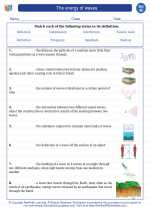Moisture
Moisture refers to the presence of water in the air or within a substance. It plays a crucial role in various natural processes and has significant implications for the environment and human activities.
Forms of Moisture
Moisture can exist in various forms, including:
- Water vapor: This is the gaseous form of water present in the atmosphere. It is invisible to the naked eye but plays a key role in the formation of clouds and precipitation.
- Liquid water: This is the most familiar form of moisture, present in bodies of water such as oceans, lakes, rivers, and as droplets in the atmosphere during precipitation.
- Ice: Water can also exist in its solid form as ice, which is prevalent in polar regions and at high altitudes.
Importance of Moisture
Moisture is essential for various natural processes, including:
- Weather patterns: Water vapor in the atmosphere influences weather patterns, leading to the formation of clouds, rain, snow, and other forms of precipitation.
- Plant growth: Adequate moisture is vital for the growth of plants, as it facilitates the process of photosynthesis and helps transport nutrients within the plant.
- Climate regulation: Moisture in the atmosphere plays a role in regulating the Earth's climate, contributing to the greenhouse effect and influencing temperature patterns.
- Hydrological cycle: The movement of water between the atmosphere, land, and oceans, known as the hydrological cycle, is driven by moisture in its various forms.
Measuring Moisture
Several instruments and techniques are used to measure moisture, including:
- Hygrometer: This instrument measures the water vapor content in the air, providing information about humidity levels.
- Rain gauge: Used to measure the amount of liquid precipitation over a specific period, providing data on rainfall patterns.
- Soil moisture probe: This device is used to measure the moisture content in soil, which is important for agricultural and environmental purposes.
Study Guide
To deepen your understanding of moisture, consider exploring the following topics:
- The role of moisture in the formation of different types of clouds.
- The impact of moisture on air quality and the formation of fog.
- The relationship between moisture and the occurrence of droughts and floods.
- The importance of moisture in industrial processes, such as food preservation and manufacturing.
- The influence of moisture on human health, particularly in relation to respiratory conditions.






